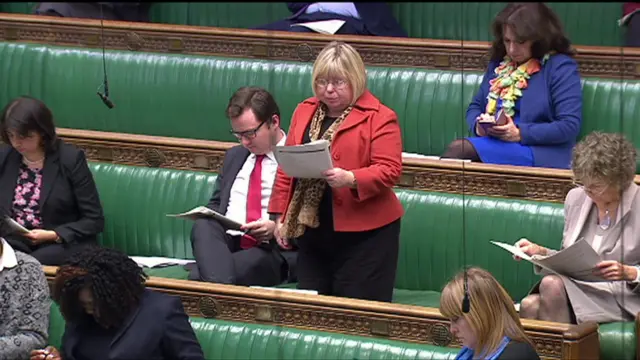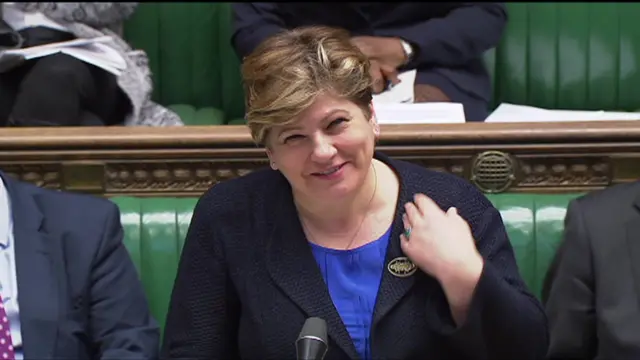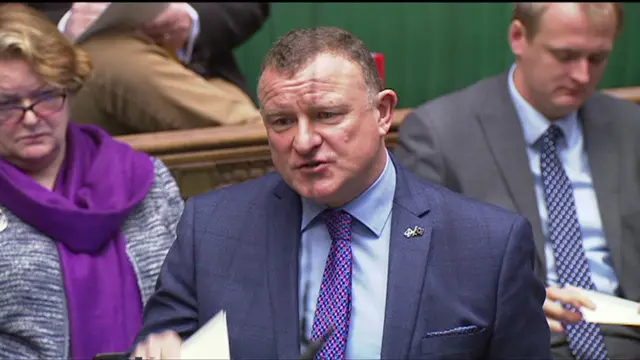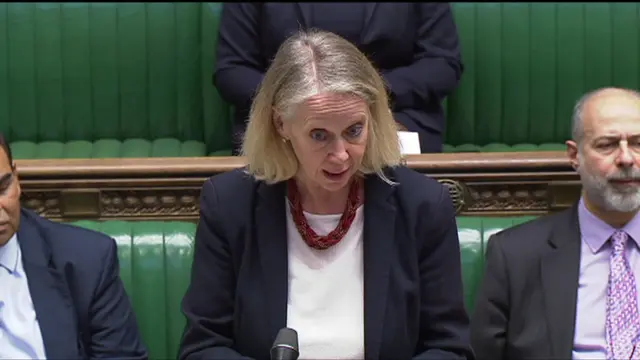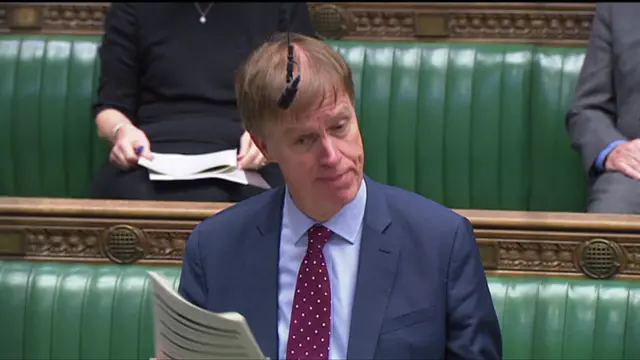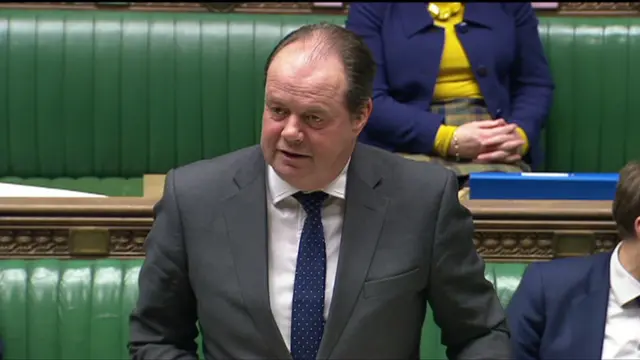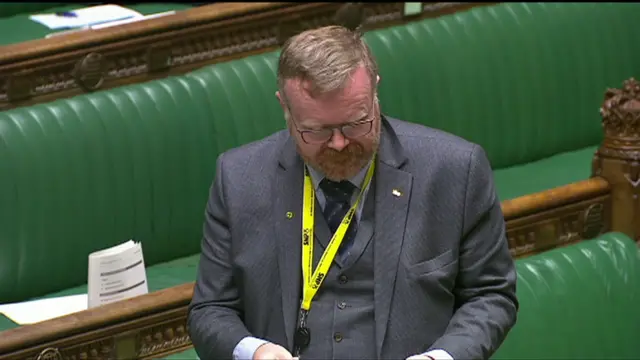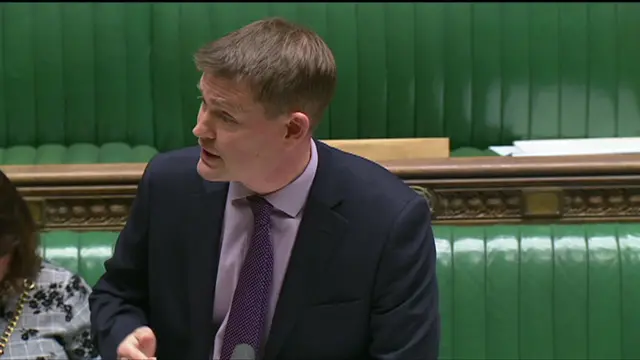Call for 'soft power' push from governmentpublished at 12:26 GMT 22 January 2019
Foreign Office Questions
 House of Commons
House of Commons
Parliament
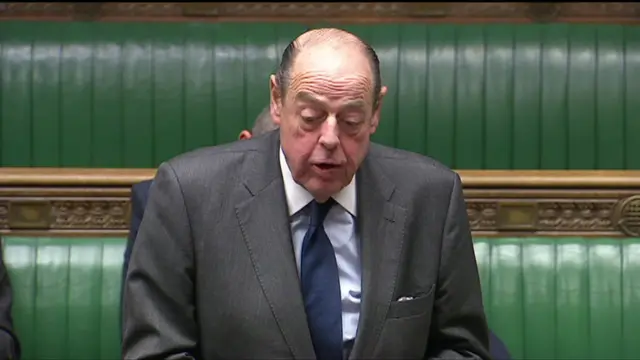 Image source, HoC
Image source, HoCConservative Sir Nicholas Soames asks what steps are being taken to co-ordinate the use of soft power in British foreign policy.
Foreign Secretary Jeremy Hunt says that according to the Portland Soft Power Index, external, the UK is the "leading" soft power.
Sir Nicholas asks for assurances that there will be a greater co-ordination of soft power across "all government departments".
Mr Hunt says that he is in charge of a "joint government task force to make sure we do everything we can".
